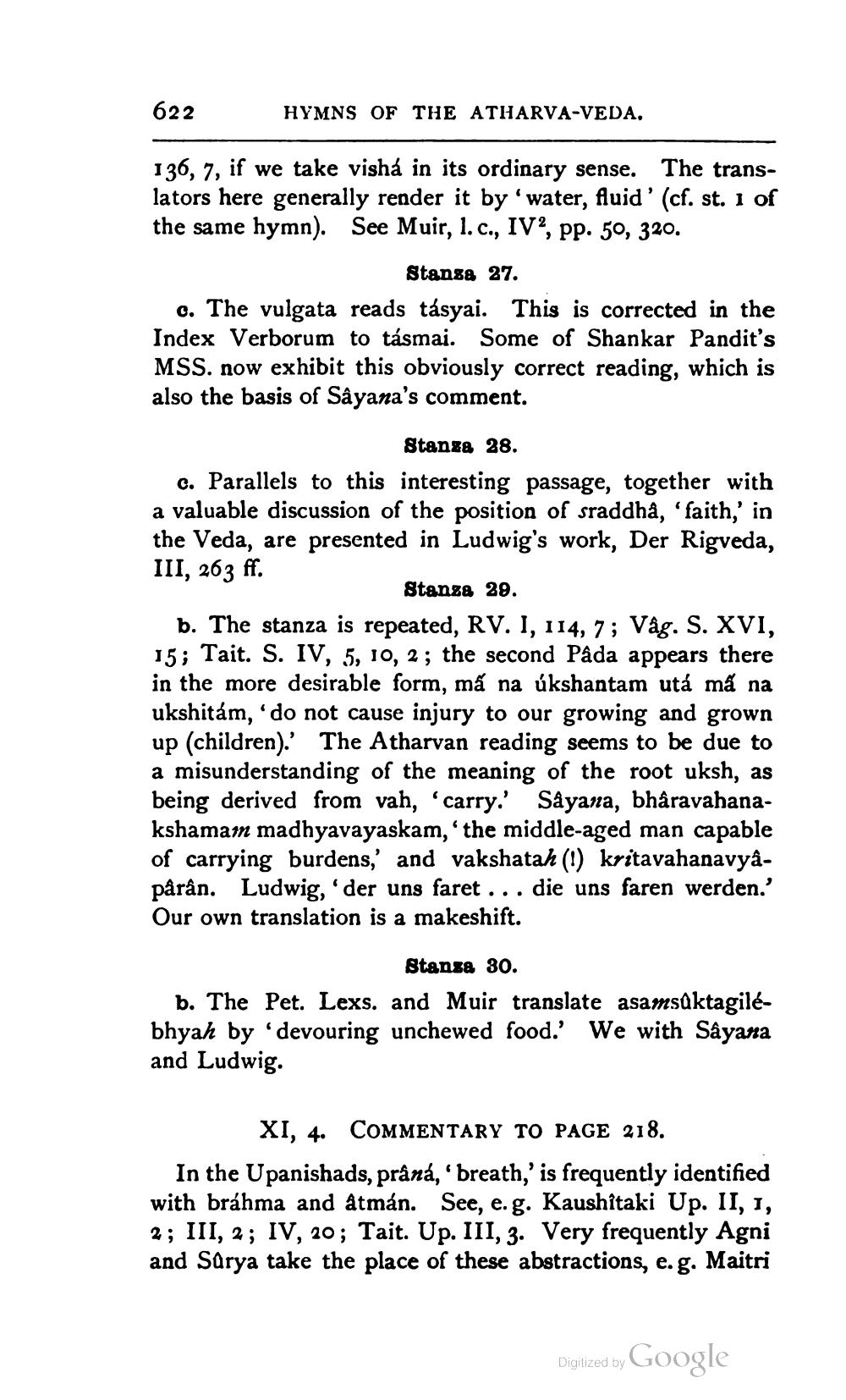________________
622
HYMNS OF THE ATHARVA-VEDA.
136, 7, if we take visha in its ordinary sense. The translators here generally render it by 'water, fluid' (cf. st. 1 of the same hymn). See Muir, 1. c., IV', pp. 50, 320.
Stansa 27. o. The vulgata reads tásyai. This is corrected in the Index Verborum to tásmai. Some of Shankar Pandit's MSS. now exhibit this obviously correct reading, which is also the basis of Sâyana's comment.
Stanza 28. c. Parallels to this interesting passage, together with a valuable discussion of the position of sraddha, 'faith,' in the Veda, are presented in Ludwig's work, Der Rigveda, III, 263 ff.
Stanza 29. b. The stanza is repeated, RV. I, 114, 7; Våg. S. XVI, 15; Tait. S. IV, 5, 10, 2; the second Pada appears there in the more desirable form, má na úkshantam utá má na ukshitám, do not cause injury to our growing and grown up (children).' The Atharvan reading seems to be due to a misunderstanding of the meaning of the root uksh, as being derived from vah, 'carry. Sảyana, bhâravahanakshamam madhyavayaskam, the middle-aged man capable of carrying burdens,' and vakshatah (1) kritavahanavyâpårân. Ludwig, der uns faret ... die uns faren werden. Our own translation is a makeshift.
Stansa 30. b. The Pet. Lexs. and Muir translate asamsaktagilébhyah by 'devouring unchewed food.' We with Sayana and Ludwig.
XI, 4. COMMENTARY TO PAGE 218. In the Upanishads, prâná, ' breath,' is frequently identified with brahma and atmán. See, e.g. Kaushitaki Up. II, 1, 2 ; III, 2; IV, 20; Tait. Up. III, 3. Very frequently Agni and Sarya take the place of these abstractions, e. g. Maitri
Digized by Google




